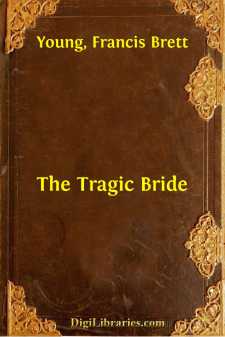Categories
- Antiques & Collectibles 13
- Architecture 36
- Art 48
- Bibles 22
- Biography & Autobiography 813
- Body, Mind & Spirit 142
- Business & Economics 28
- Children's Books 15
- Children's Fiction 12
- Computers 4
- Cooking 94
- Crafts & Hobbies 4
- Drama 346
- Education 46
- Family & Relationships 57
- Fiction 11828
- Games 19
- Gardening 17
- Health & Fitness 34
- History 1377
- House & Home 1
- Humor 147
- Juvenile Fiction 1873
- Juvenile Nonfiction 202
- Language Arts & Disciplines 88
- Law 16
- Literary Collections 686
- Literary Criticism 179
- Mathematics 13
- Medical 41
- Music 40
- Nature 179
- Non-Classifiable 1768
- Performing Arts 7
- Periodicals 1453
- Philosophy 64
- Photography 2
- Poetry 896
- Political Science 203
- Psychology 42
- Reference 154
- Religion 513
- Science 126
- Self-Help 84
- Social Science 81
- Sports & Recreation 34
- Study Aids 3
- Technology & Engineering 59
- Transportation 23
- Travel 463
- True Crime 29
The Tragic Bride
Categories:
Description:
Excerpt
PROLOGUE
I never met Gabrielle Hewish. I suppose I should really call her by that name, for her marriage took the colour out of it as surely as if she had entered a nunnery, and adopted the frigid and sisterly label of some female saint. Nobody had ever heard of her husband before she married him, and nobody ever heard of Gabrielle afterwards, except those who were acquainted with the story of Arthur Payne, as I was, and, perhaps, a coroner's jury in Devonshire, a county where juries are more than usually slow of apprehension. In these days you will not even find the name of Hewish in Debrett, for Gabrielle was the baronet's only child, and when Sir Jocelyn died, in the early days of his daughter's married life, the family, which for the last half century had been putting out no more than a few feeble and not astonishingly brilliant leaves on its one living branch, withered altogether, as well it might in the thin Irish soil where it had stubbornly held its own since the days of Queen Elizabeth. After all, baronetcies are cheap enough in Ireland, and one more or less could make very little difference to the amenities of County Galway, where Roscarna, for all I know, may have been absorbed and parcelled out by the Congested Districts Board ten years ago. Even in clubs and places where they gossip, I doubt if the Hewishes of Roscarna are remembered, for modern memories are short, and in Gabrielle's day the illustrated Sunday newspapers had not contrived to specialise in the smiles of well-connected young Irishwomen.
Of course the Payne episode—I'm not sure it should not rather be called the Payne miracle—had always lain stored somewhere in my literary attic; its theme was too exciting for a man who deals in such lumber to have forgotten; but that admirable woman, Mrs. Payne, had whetted my curiosity to such an extent that I weakly promised her secrecy before she told it to me. "I can't resist telling you," she said, "because it wouldn't be fair of me to deprive you: it's far too much in your line." She even flattered me: "You'd do it awfully well too, you know; but I have a sort of sentimental regard for her—not admiration, or anything of that kind, but an indefinite feeling that noblesse oblige. In her own extraordinary way she did us a good turn, and however carefully you wrapped it up she might recognise her portrait and feel embarrassed. It's she that I'm thinking of, not Arthur. Arthur was too young at the time to realize what was happening, and if he saw your picture of two women desperately fighting over the soul or body of a boy of seventeen who resembled himself I doubt if he'd tumble to the portrait. He's a dear transparently honest person like his father. Still, I don't want to hurt her, and so, if you want the story, you must gloat over it in private, and cherish it as an unwritten masterpiece. Probably if you did write it, it wouldn't be a masterpiece at all. Console yourself with that."
She told me her story—for of course I gave her the promise that she demanded—in a midge-infested corner of the garden at Overton, while Arthur, the unconscious subject of it, was playing tennis with the clergyman's daughter whom he married a year later....


